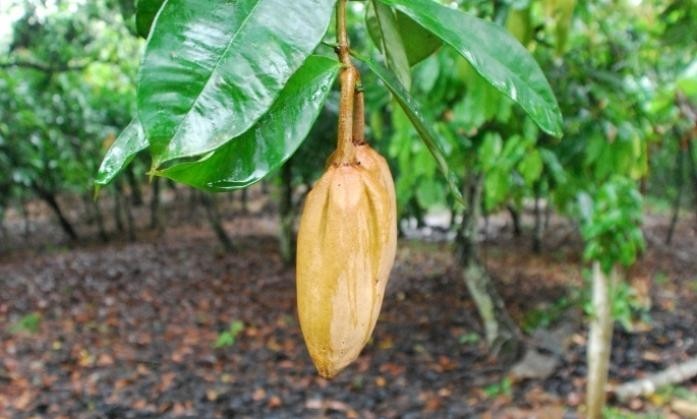Species in Peril Programme
Secondly, some of the species are of local, national and/or global significance given their status of being endangered, endemic and /or range restricted in nature. International treaties such as the Convention on International Trade in Endangered Species (CITES) and the Convention on Biological Diversity (CBD) support the conservation and /or sustainable use of species.
Thirdly, the fact that they form part of the natural web of life that supports human populations for their aesthetic values, usefulness in scientific research and medicine, human consumption for food in specific cases, and the need for their conservation for future generation of people is crucial to NCF. In general terms, NCF supports the conservation of all varieties of species of plants and animals. NCF also promotes species conservation through research, policy advocacy, public education and awareness. In recent times and based on her new strategic focus, NCF is determined to place priority on certain species of wildlife while we continue to support the conservation of others in general terms. Our past and current work focuses on the following species.
Past and Current Works
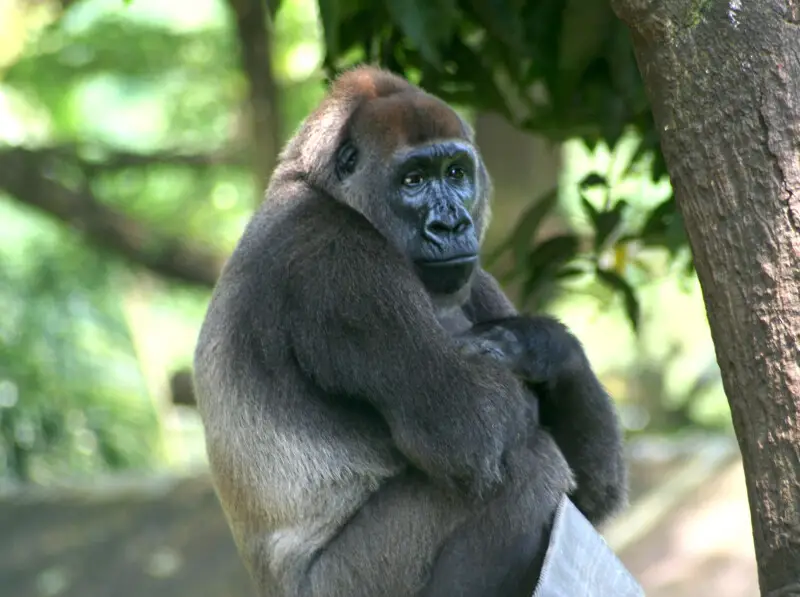
The Cross River Gorilla
We carried out field assessment of the populations of Gorilla on the rugged terrains of Afi- Mbe -Okwangwo in Boki Local Government area of Cross River State as far back as 1986. The Cross River lowland Gorilla (Gorilla gorilla diehli) had lived in the south eastern part of Nigeria for many years.
It is so called because of the slight difference between it and that of the western lowland gorilla. By the 1980s however it was believed that this primate had become extinct. This however changed with the NCF rediscovery and confirmation of the presence of this rare species in the area during that field assessment and subsequent surveys.
This confirmation became a watershed and the basis for long term conservation activity by NCF, and other organisations, as well as global recognition of the prominence of the forests of Cross River State for their high conservation value. Since this pioneering work, NCF has established a Zonal Office in Cross River and has ongoing projects in the region.

Nigerian Cameroon Chimpanzees
In all ramifications, NCF has done much to support the conservation of the most intelligent wild mammal. Apart from supporting the conservation of chimpanzee (Pan troglodytes ellioti) in its range habitats and ecosystems in different parts of Nigeria and at different levels (Okomu National Park, Gashaka-Gumti National Park, Cross River National Park, Mbe Mountains in Cross River State, Afi Forests Reserve in Cross River State, Omo Forests in Ogun State), NCF has also collaborated with partners such as FFI, WWF and WCS at various times and on specific issues regarding the conservation and protection of chimpanzee populations in Nigeria.
The discovery of Pan troglodytes vellerosus as a distinct sub species only known to exist in the forests of Nigeria made the need for its conservation a more urgent and immediate cause. NCF has worked in all the areas important for the conservation of this sub-species (Afi, Mbe and Okwango in Cross River, Gashaka-Gumti and south-west Nigeria) but currently focuses on the fragmented forests of south-west Nigeria (particularly Omo Forest Reserve) where threats to the animal are most severe.

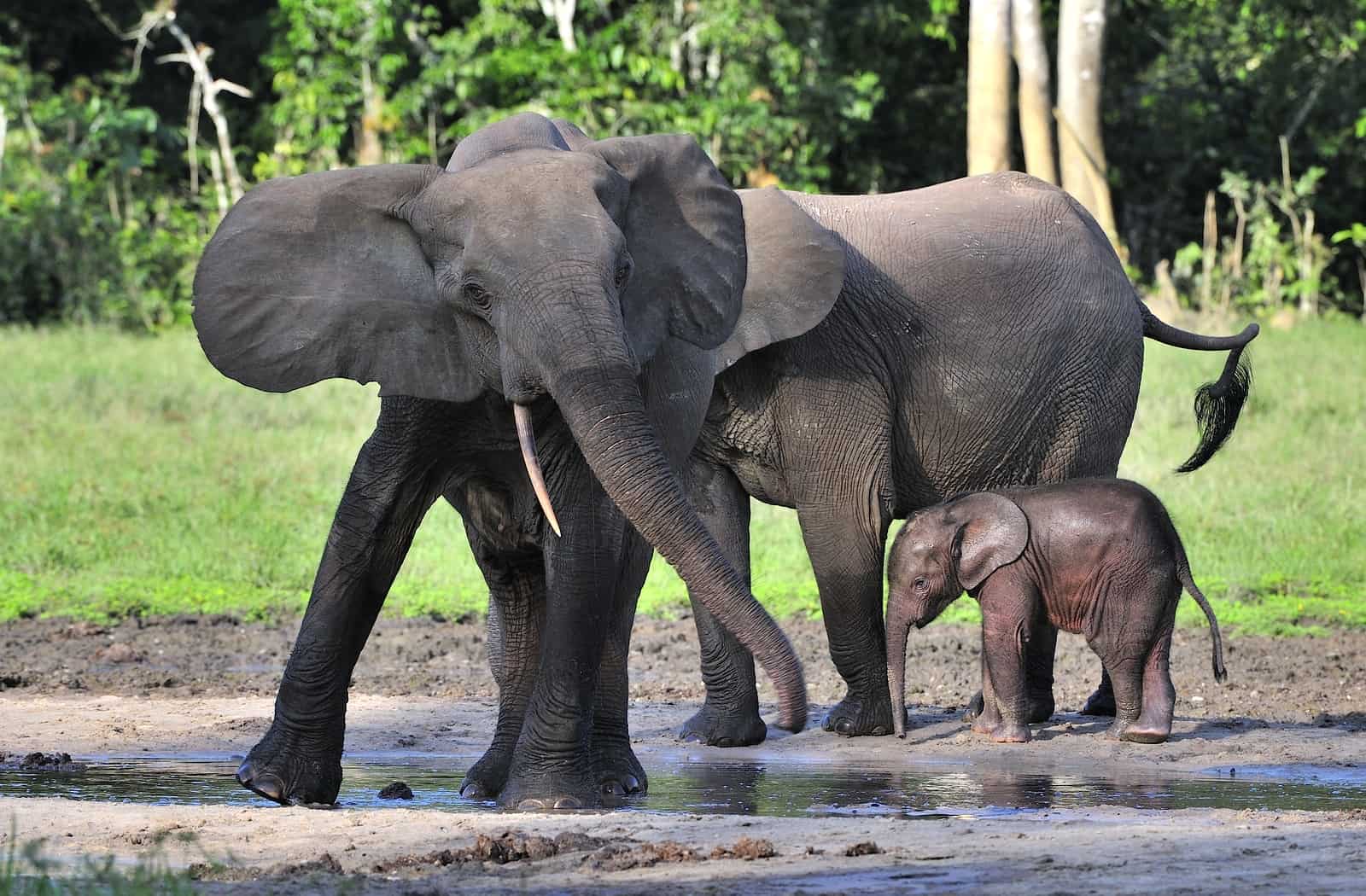
African Elephants
In the mid-1980s, NCF organised an international fundraising campaign for the protection of the populations of Elephants in Yankari Game Reserve in the Nigerian savannah region. The campaign was launched in London and became so popular that it earned NCF great respect abroad and back home in Nigeria. In an effort to consolidate the gains of the campaign, a group of interested Nigerians together with their British friends registered a conservation Initiative known as the Yankari Initiative (later became Savanna Conservation Nigeria). This group has been supported by NCF and continued to work towards the conservation of elephants in Yankari.
NCF did not stop with the Bush Elephants. It took interest in protecting the forest elephant (Loxodonta cyclotis) in south-west Nigeria. The forest elephant is now recognized as a distinct sub-species of elephants which makes it critically endangered and highlights the need for urgent action towards its conservation. NCF manages the Omo Forest Reserve under a Memorandum of Understanding with the Ogun State Government. The reserve harbours a population of forest elephants.
The White-Throated Monkey
If what had happened to the formerly rich forests of Edo State in Nigeria was to go by, then by today, only scanty populations of an endemic species, the white throated monkey (Cercopithecus erythrogaster) would have remained in the fragmented forests of south-west Nigeria. The intervention of the NCF in 1983 was the beginning of rewarding efforts that saved the white throated monkey.
For about fourteen years that followed, NCF directly led the technical and operational management of Okomu Wildlife Sanctuary, a 112 sq km forest which formed the core of the enlarged Okomu Forest ecosystem. After twelve years of conservation and protection of the wildlife sanctuary, NCF secured the support of the Federal Government of Nigeria to gazette Okomu Wildlife Sanctuary as a National Park.
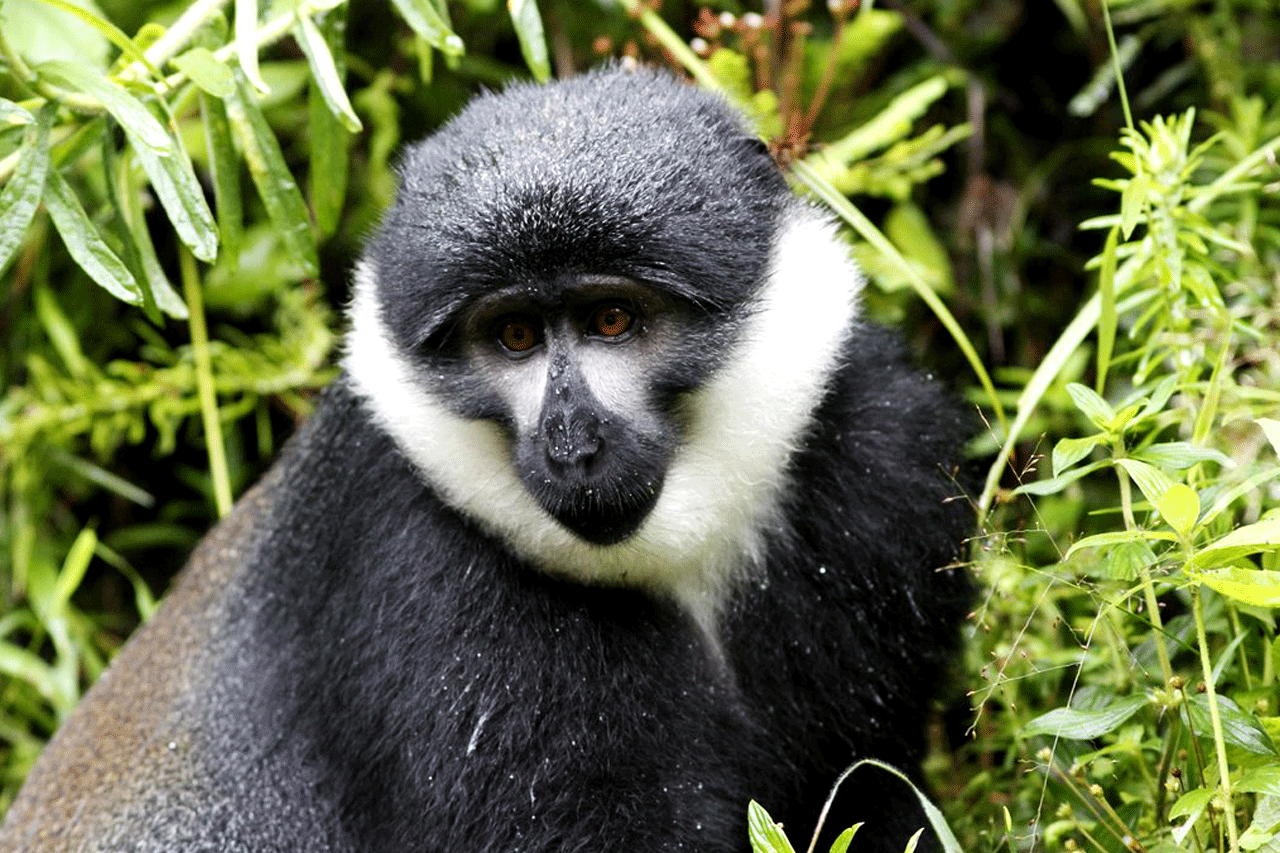
If what had happened to the formerly rich forests of Edo State in Nigeria was to go by, then by today, only scanty populations of an endemic species, the white throated monkey (Cercopithecus erythrogaster) would have remained in the fragmented forests of south-west Nigeria. The intervention of the NCF in 1983 was the beginning of rewarding efforts that saved the white throated monkey.
For about fourteen years that followed, NCF directly led the technical and operational management of Okomu Wildlife Sanctuary, a 112 sq km forest which formed the core of the enlarged Okomu Forest ecosystem. After twelve years of conservation and protection of the wildlife sanctuary, NCF secured the support of the Federal Government of Nigeria to gazette Okomu Wildlife Sanctuary as a National Park.

Sclater's Guenon
NCF undertook a survey of another endemic monkey, Sclater’s Guenon (Cercopithecus sclateri) in its strong community base in Akpgueze, Anambra State and Lagwa, Imo State in the 1990s. We established the Stubbs Creek Conservation Project to protect the Sclater Guenon in the wild in Akwa lbom State within the Niger Delta. The Sclater’s guenon is still protected by traditional taboos in many cultural groves in a number of communities in south-eastern Nigeria.
Pangolins
Pangolins have earned the reputation of being the most trafficked species of mammals in the world! Our goal is to stop the trade outrightly by strengthening actions on enforcement and prosecution in Nigeria. Additionally, we have outlined a number of recovery plans, ranging from research and policy formulations to environmental education and advocacy, which will be widely implemented in addressing factors threatening the populations of pangolins in the country.
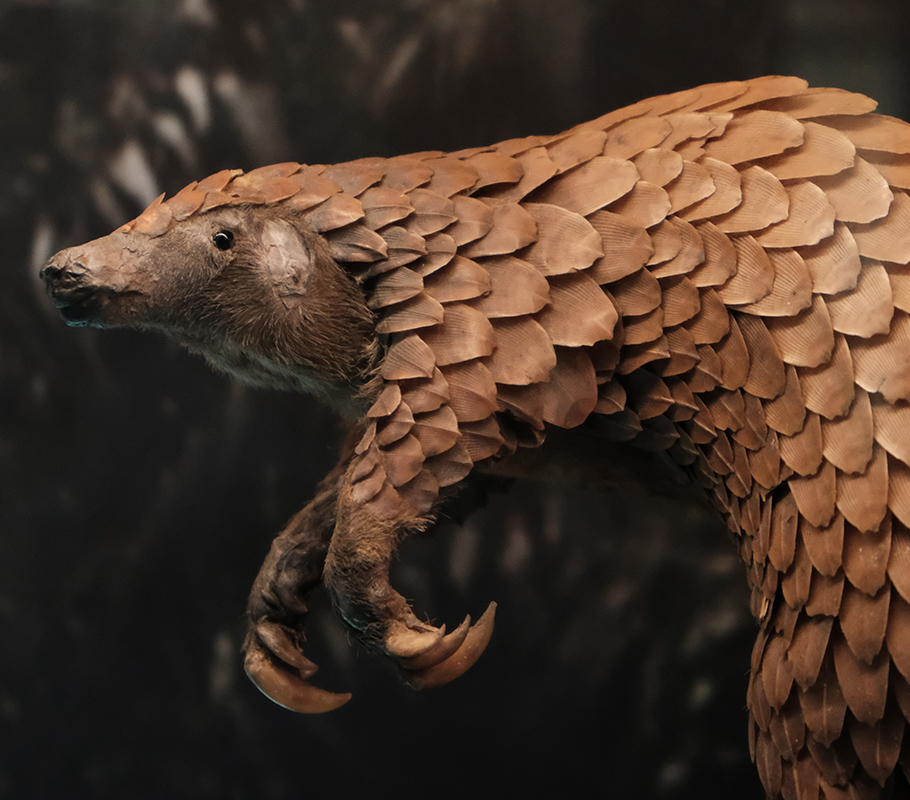
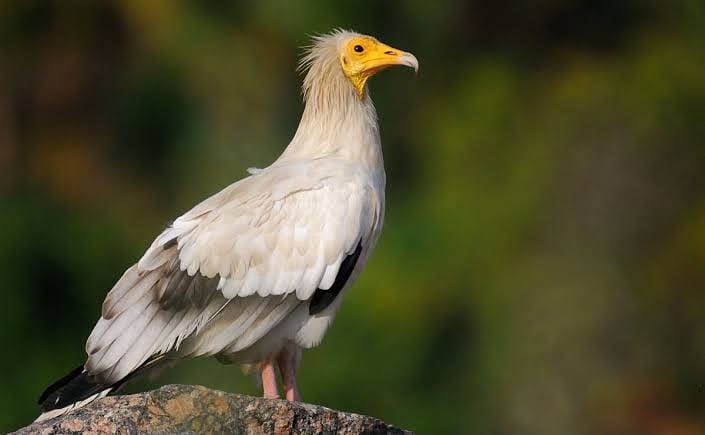
Birds
As the Partner of BirdLife International in the country, NCF inventoried the Important Bird Areas (IBAs) in Nigeria and published the findings in its book, “Critical Sites for Biodiversity Conservation in Nigeria”. The study found that Nigeria has 904 species of birds. These include 436 confirmed breeding residents, 165 residents that are suspected to breed, about 150 palearctic migrants and 90 intra African migrants. The 1BA Study listed 52 sites known for birds and biodiversity conservation with 28 that met the IBA criteria. These IBAs are regularly monitored and the results are posted in the World Birds Database maintained by BirdLife International. About 34 bird species are of global conservation concern in Nigeria and as follow up steps to enhance the management IBA sites, NCF started demonstration projects in Buru in Taraba State and Amurum near Jos in Plateau State. The IBA study and Amurum project were precursors to the establishment of the A.P. Leventis Ornithological Research Institute (APLORI) of the University of Jos as a joint initiative of the University, NCF and Mr A. P. Leventis, a member of NCF’s Board of Trustees.
African Vultures
With general persecution and faith-based practices responsible for the rapid depletion of the vulture to the point of being threatened, our role focuses on campaign and advocacy in order to correct misconception, stop belief-based use by traditional healers and help the recovery of vultures from the brink of extinction. We are working with BirdLife International, US Fish & Wildlife Service (USFWS), European Union, State governments and prominent individuals to promote conservation education, community governance, build institutional capacity and encourage the enforcement of appropriate laws and sanctions.
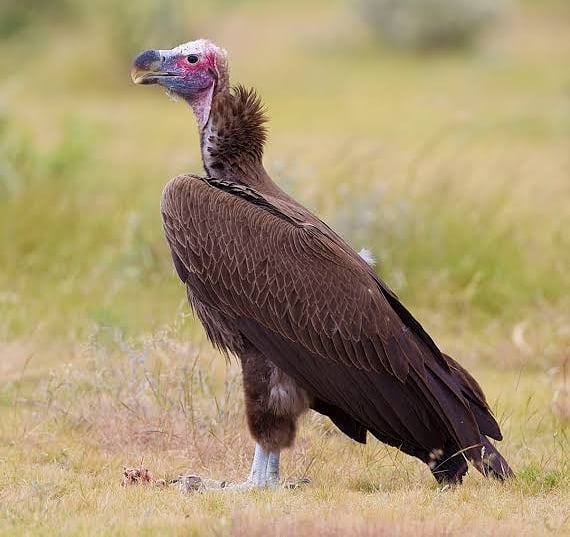

Sea Turtles
With six out of the seven known species of the sea turtle threatened with extinction, we are committed to preserving these harmless animals through advocacy and preservation of the breeding sites of the sea turtles which is along the sandy shores. Our advocacy activities focus on awareness creation, grassroots mobilization and clean-up exercises in the coastal communities. We equally engage in rescue and release of turtles accidentally captured by fishers.
Plants- AllanBlackia
The importance of the fruit of Allanblackia (Allanblackia fluribunda) as a Non-Timber Forest Product (NTFP) that is of immense economic value was recently discovered when a multinational company, Unilever, started using it to produce margarine in Nigeria. NCF played a prominent role in the assessment of the distribution and relative abundance of the plants in about twelve states in southern, central and north-eastern Nigeria. In the communities where the plant was found in abundance, NCF mobilised local people to protect forests for the commercial value that NTFPs such as Allanblackia provide to them.
